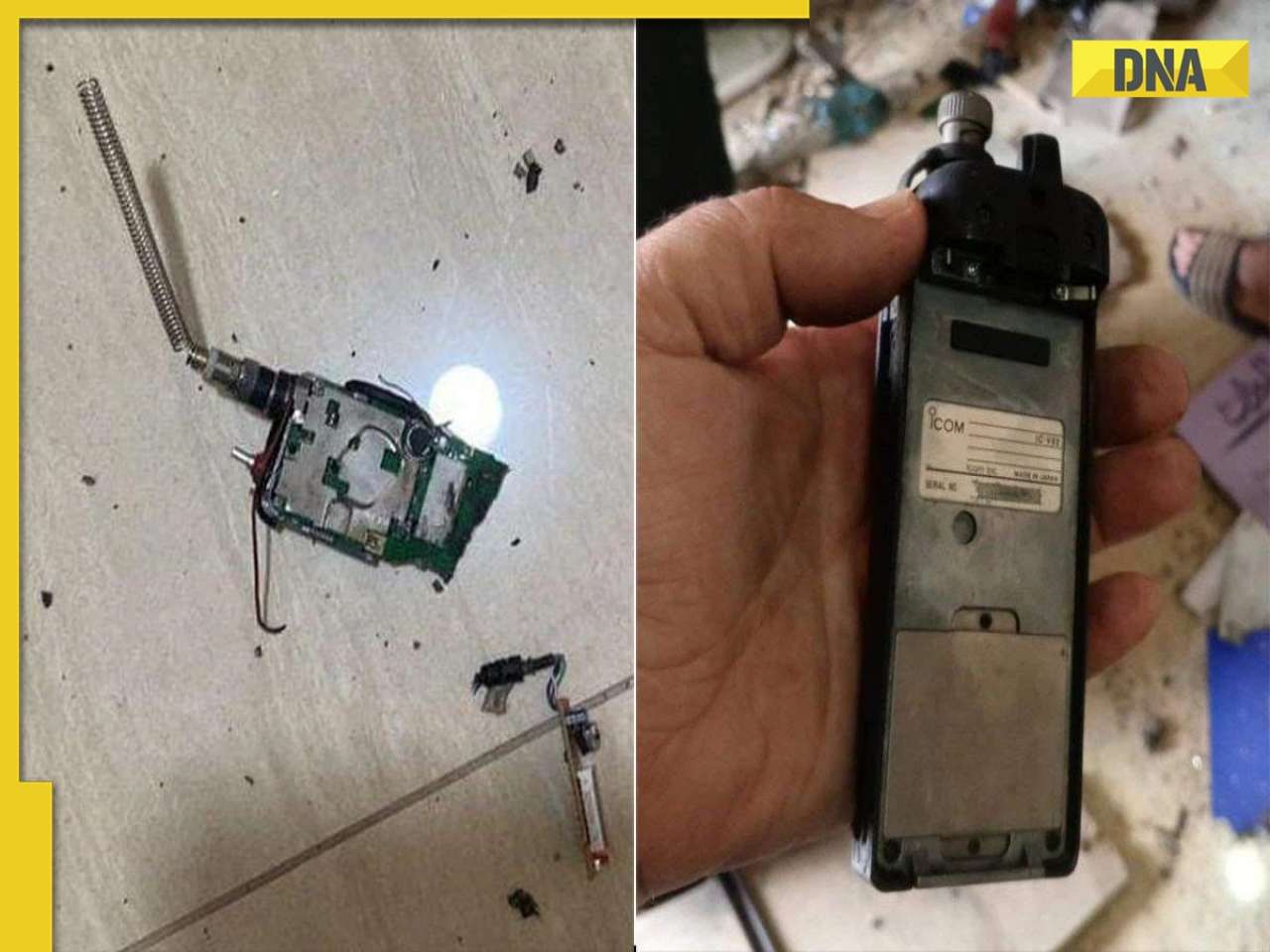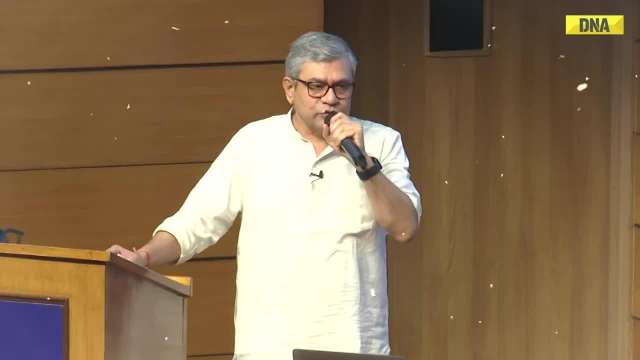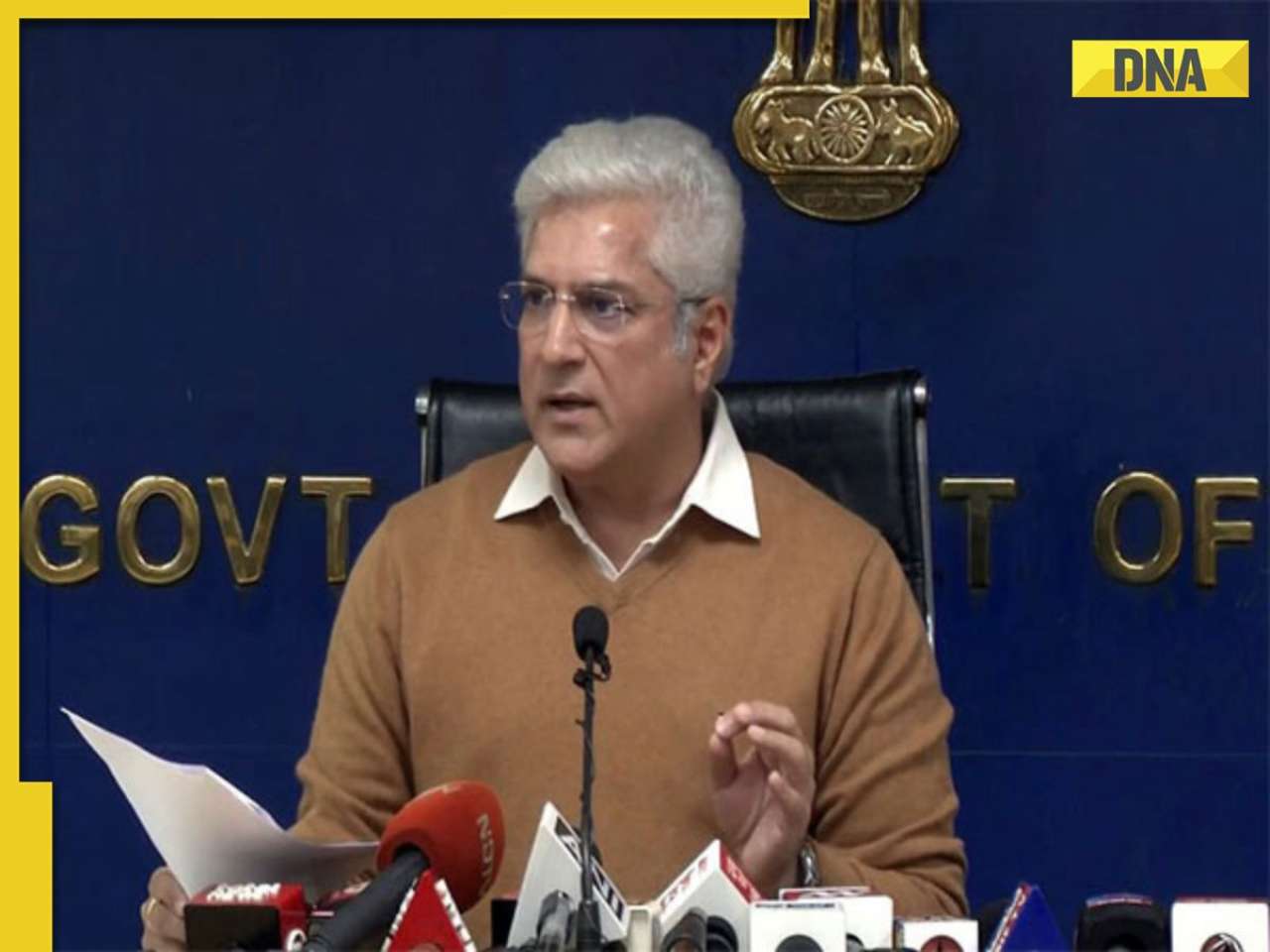The announcement by the world's largest oil-exporting country was made with elderly Saudi king Abdullah in the United States recovering from surgery to treat a blood clot complication from a slipped disc.
Saudi Arabia said on Friday it had captured 149 al-Qaeda militants in recent months who were raising money and recruiting members to carry out attacks inside the kingdom, with links to other militants in Somalia and Yemen.
The announcement by the world's largest oil-exporting country was made with elderly Saudi king Abdullah in the United States recovering from surgery to treat a blood clot complication from a slipped disc.
"In the past eight months 149 people linked to al-Qaeda were arrested, among them were 124 Saudis and 25 were from other nationalities," interior ministry spokesperson Mansour Turki told a news conference.
Turki said the attackers belonged to 19 al-Qaeda cells and were planning to target government facilities, security officials and journalists in the kingdom. He gave no names of targets.
When asked whether they had also targeted oil installations in Saudi Arabia, the world''s top oil exporter, he said: "We cannot exclude this. Investigations are ongoing."
The television channel al Arabiya reported that the kingdom had also foiled plans to attack Saudi oil installations.
The non-Saudi suspects were Arabs, Africans and South Asians, he said, adding that the thwarted cells had associations with al Qaeda in Yemen, Somalia and Afghanistan.
"These cells have links with al-Qaeda who are disturbing the security in Yemen, with Somalia and organisations in Afghanistan," Turki said.
One cell had links to Somalia, but the large majority had ties to Yemen. Most cells were very small, were operating independently and still in the stages of being set up, he said.
The ministry confiscated 2.24 million riyals ($597,000) from al-Qaeda suspects, he said, and militants had tried to collect money and spread their ideology during the Muslim pilgrimages of Haj and Umra in Saudi Arabia.
Analysts said that while the announcement was not unusual for Saudi Arabia, it pointed to the kingdom's continuing struggle against militancy but also its improved intelligence and tactics in fighting al-Qaeda.
"There is no doubt that there is a security problem. Particularly it seems (to be) coming from inside Yemen," said Neil Partrick, an independent Britain-based analyst on the Middle East.
"In the last five years the Saudi security services ... have become more efficient at intercepting security threats, whether those directed against soft targets or those against major installations."
A Saudi Arabian counter-terrorism drive halted a violent al Qaeda campaign in the Gulf Arab country from 2003 to 2006. Al-Qaeda's Yemeni and Saudi wings merged in 2009 into a new group, Al Qaeda in the Arabian Peninsula (AQAP), based in Yemen.
"The organisation is trying to recruit people inside the kingdom. There are cells that facilitate (the recruits) to travel outside (the kingdom) to train and then they return, Turki said.
"They exploit the Haj season for this purpose," Turki told journalists at the press conference. The plan was to send them to countries including Somalia and Yemen, he said.
One cell was learning how to build car bombs, he said. A woman was also among those arrested, he said, for spreading al-Qaeda's ideology on the Internet, but she was returned to her family as is customary in the kingdom.
Those who had donated money were not aware they were giving to militant organisations, he said. Saudi banks last month launched a campaign to stem the flow of money to support al-Qaeda.
Saudi concerns about al-Qaeda's presence in Yemen deepened after the kingdom's top anti-terrorism official, Prince Mohammed bin Nayef, was slightly hurt in a suicide attack in August 2009 by a Saudi posing as a repentant militant returning from Yemen.
The arrests announced on Friday follow one of the largest al-Qaeda sweeps in years by Saudi Arabia earlier this year.
In March, the kingdom arrested 113 al-Qaeda militants including alleged suicide bombers who it said had been planning attacks on energy facilities in the world's top oil-exporting country.
The March arrests netted 58 suspected Saudi militants and 52 from Yemen. The militants, who also came from Bangladesh, Eritrea and Somalia, were backed by the Yemen-based AQAP.
Last month a plot to send two parcel bombs from Yemen to the United States was foiled following a tip-off from Saudi Arabia.
![submenu-img]() Meet man who started his business with Rs 3.6 lakh investment, but faced huge loss, then built his own machine to...
Meet man who started his business with Rs 3.6 lakh investment, but faced huge loss, then built his own machine to...![submenu-img]() This startup from Shark Tank might end long queues at fuel stations by…
This startup from Shark Tank might end long queues at fuel stations by…![submenu-img]() Meet woman, who had broken neck at birth, faced 7 job rejections, now runs Rs 160323 crore company as…
Meet woman, who had broken neck at birth, faced 7 job rejections, now runs Rs 160323 crore company as…![submenu-img]() Amitabh Bachchan’s grandson Agastya Nanda invests in this latest food venture in...
Amitabh Bachchan’s grandson Agastya Nanda invests in this latest food venture in...![submenu-img]() Could your phone be next bomb? Scary truth about remote explosions
Could your phone be next bomb? Scary truth about remote explosions![submenu-img]() 'दीदी' को हिंदू त्योहारों से दिक्कत? West Bengal में मुहर्रम पर कॉरिडोर बनवाया, 112 फुट ऊंचे दुर्गा पूजा पंडाल का काम रुकवाया, जानें पूरा विवाद
'दीदी' को हिंदू त्योहारों से दिक्कत? West Bengal में मुहर्रम पर कॉरिडोर बनवाया, 112 फुट ऊंचे दुर्गा पूजा पंडाल का काम रुकवाया, जानें पूरा विवाद![submenu-img]() Israel Hezbollah War: हिजबुल्लाह चीफ दे रहा था टीवी पर धमकी, तभी इजरायली विमानों ने कर दी लेबनान में एयर स्ट्राइक
Israel Hezbollah War: हिजबुल्लाह चीफ दे रहा था टीवी पर धमकी, तभी इजरायली विमानों ने कर दी लेबनान में एयर स्ट्राइक![submenu-img]() कोलकाता रेप-मर्डर केस में जूनियर डॉक्टरों की हड़ताल खत्म, इस दिन से काम पर लौटने का किया फैसला
कोलकाता रेप-मर्डर केस में जूनियर डॉक्टरों की हड़ताल खत्म, इस दिन से काम पर लौटने का किया फैसला![submenu-img]() तिरुपति मंदिर के प्रसाद में मिलाई जानवर की चर्बी? सीएम चंद्रबाबू नायडू के दावे पर मचा बवाल, जानिए क्या कहती है लैब रिपोर्ट
तिरुपति मंदिर के प्रसाद में मिलाई जानवर की चर्बी? सीएम चंद्रबाबू नायडू के दावे पर मचा बवाल, जानिए क्या कहती है लैब रिपोर्ट![submenu-img]() New Corona Variant: तेजी से फैल रहा कोरोना का नया XEC वेरिएंट, 27 देशों में मिले मरीज, क्या फिर दिखेगा 2020 जैसा खौफनाक नजारा?
New Corona Variant: तेजी से फैल रहा कोरोना का नया XEC वेरिएंट, 27 देशों में मिले मरीज, क्या फिर दिखेगा 2020 जैसा खौफनाक नजारा?![submenu-img]() Ford to return to India after 2 years with reopening of....
Ford to return to India after 2 years with reopening of....![submenu-img]() Maruti Suzuki launches new Swift CNG, check price, mileage, other features
Maruti Suzuki launches new Swift CNG, check price, mileage, other features![submenu-img]() ‘30 LPA, 3BHK, no in-laws’: Woman earning Rs 1.32 lakh salary lists demands for future husband, netizens say...
‘30 LPA, 3BHK, no in-laws’: Woman earning Rs 1.32 lakh salary lists demands for future husband, netizens say...![submenu-img]() In a big EV push, Centre launches Rs 10900 crore PM E-Drive scheme to replace…
In a big EV push, Centre launches Rs 10900 crore PM E-Drive scheme to replace…![submenu-img]() World’s longest car has helipad, swimming pool, mini-golf course, can seat over…; it cost…
World’s longest car has helipad, swimming pool, mini-golf course, can seat over…; it cost…![submenu-img]() Meet woman, who scored 97% in class 12, secured 705 out of 720 marks in NEET exam, her AIR is...
Meet woman, who scored 97% in class 12, secured 705 out of 720 marks in NEET exam, her AIR is...![submenu-img]() NEET UG Counselling 2024: Round 2 seat allotment result declared at mcc.nic.in, check direct link here
NEET UG Counselling 2024: Round 2 seat allotment result declared at mcc.nic.in, check direct link here![submenu-img]() Meet IPS officer who has resigned after serving for 18 yrs due to...
Meet IPS officer who has resigned after serving for 18 yrs due to...![submenu-img]() Meet Indian man, who got hired whopping Rs 12000000 crore salary job, not from IIT, IIM he is...
Meet Indian man, who got hired whopping Rs 12000000 crore salary job, not from IIT, IIM he is...![submenu-img]() Meet woman who left medical career for UPSC exam , became IPS with AIR 165 then left job due to...
Meet woman who left medical career for UPSC exam , became IPS with AIR 165 then left job due to...![submenu-img]() Congress President Kharge Slams & Opposes 'One Nation, One Election' Proposal, Calls It Impractical
Congress President Kharge Slams & Opposes 'One Nation, One Election' Proposal, Calls It Impractical![submenu-img]() Why 'One Nation One Election' Is important? Ashwini Vaishnaw Explains After It Gets Cabinet Approval
Why 'One Nation One Election' Is important? Ashwini Vaishnaw Explains After It Gets Cabinet Approval![submenu-img]() Jammu Kashmir Assembly Election 2024 Phase 1 Highlights: What Happened In First phase In J&K Polls?
Jammu Kashmir Assembly Election 2024 Phase 1 Highlights: What Happened In First phase In J&K Polls?![submenu-img]() One Nation One Election: Centre Clears Proposal, Bill To Be Introduced In Winter Session | Modi 3.0
One Nation One Election: Centre Clears Proposal, Bill To Be Introduced In Winter Session | Modi 3.0![submenu-img]() Haryana Elections 2024: Is BJP Set To Lose In Haryana? Anti-Incumbency And Other Factors Analysed
Haryana Elections 2024: Is BJP Set To Lose In Haryana? Anti-Incumbency And Other Factors Analysed![submenu-img]() Meet man who started his business with Rs 3.6 lakh investment, but faced huge loss, then built his own machine to...
Meet man who started his business with Rs 3.6 lakh investment, but faced huge loss, then built his own machine to...![submenu-img]() This startup from Shark Tank might end long queues at fuel stations by…
This startup from Shark Tank might end long queues at fuel stations by…![submenu-img]() Meet woman, who had broken neck at birth, faced 7 job rejections, now runs Rs 160323 crore company as…
Meet woman, who had broken neck at birth, faced 7 job rejections, now runs Rs 160323 crore company as…![submenu-img]() Amitabh Bachchan’s grandson Agastya Nanda invests in this latest food venture in...
Amitabh Bachchan’s grandson Agastya Nanda invests in this latest food venture in...![submenu-img]() After reducing debt, Anil Ambani's company now approves Rs 3014 crore...
After reducing debt, Anil Ambani's company now approves Rs 3014 crore...![submenu-img]() From Gurdas Maan to Diljit Dosanjh: Punjabi musical icons who took over global stage in traditional outfits
From Gurdas Maan to Diljit Dosanjh: Punjabi musical icons who took over global stage in traditional outfits![submenu-img]() In pics: Saiyami Kher conquers Ironman triathlon in Germany, swims, cycles, runs to complete endurance races
In pics: Saiyami Kher conquers Ironman triathlon in Germany, swims, cycles, runs to complete endurance races![submenu-img]() Meet IAS officer, who cracked in UPSC exam along with full-time job, her AIR was...
Meet IAS officer, who cracked in UPSC exam along with full-time job, her AIR was...![submenu-img]() In pics | India vs Bangladesh 1st Test, Day 1
In pics | India vs Bangladesh 1st Test, Day 1![submenu-img]() From Mechuka to Hayuliang village: Explore lesser-known destinations of Arunachal Pradesh
From Mechuka to Hayuliang village: Explore lesser-known destinations of Arunachal Pradesh![submenu-img]() Haryana Assembly Elections 2024: AAP chief Arvind Kejriwal to kick-start poll campaign today
Haryana Assembly Elections 2024: AAP chief Arvind Kejriwal to kick-start poll campaign today![submenu-img]() PM Modi to visit Maharashtra today, to unveil major initiatives for...
PM Modi to visit Maharashtra today, to unveil major initiatives for...![submenu-img]() Kolkata rape-murder case: Junior doctors to end protest, resume emergency services from...
Kolkata rape-murder case: Junior doctors to end protest, resume emergency services from...![submenu-img]() India reacts to report on diversion of Indian defence exports to Ukraine, says, ‘it is…’
India reacts to report on diversion of Indian defence exports to Ukraine, says, ‘it is…’![submenu-img]() 'Towards reducing pollution..': Delhi govt approves replacement, induction of electric vehicles in 'Gramin Sewa'
'Towards reducing pollution..': Delhi govt approves replacement, induction of electric vehicles in 'Gramin Sewa'











































)
)
)
)
)
)
)
)
)
)
)
)
)
)





)
)
)
)
)
)